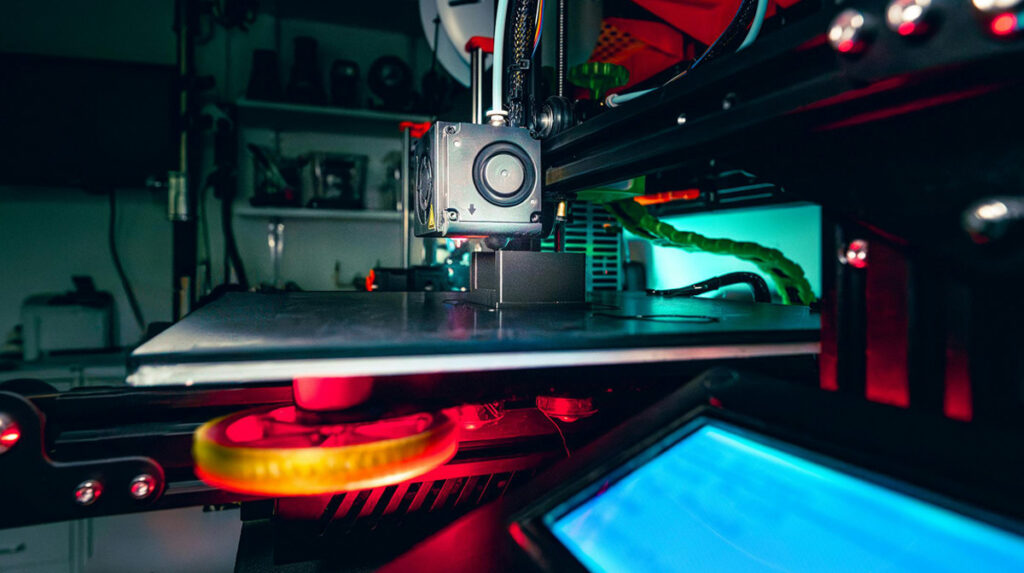Market Validation for a Pill Case Design
IN2 International Case Study
IN2 International was approached by a startup in the wellness industry with a unique vision: they wanted to design a pill case that would not only serve as a functional storage solution but also align with the modern consumer’s need for portability, durability, and aesthetic appeal. The client’s focus was on creating a premium product that could appeal to a health-conscious market, and they needed IN2 to help them prototype and validate the concept.
Given the early stage of this product’s development, the primary focus was to create a prototype that could undergo market validation before moving toward manufacturing at scale. IN2’s experience in designing for manufacturability while catering to early-stage product needs allowed for a smooth process of transforming the client’s vision into a practical, testable solution.
The Challenge
The pill case project posed several key challenges for IN2:
- Portability and Durability: The design had to be compact and lightweight, yet sturdy enough to withstand daily use and frequent handling.
- Functionality: The pill case needed a mechanism that would securely hold the pills while ensuring easy access, whether through a snap-lock feature or a smooth sliding function.
- Aesthetic Considerations: The client envisioned a sleek, modern look for the pill case that would differentiate it from other products on the market, appealing to a high-end customer base.
- Market Validation Focus: At this early stage, the prototype needed to be developed quickly for testing with potential customers. Feedback from this validation would inform any necessary design refinements before moving toward a final manufacturable product.
The Solution: A Prototyping Process Tailored for Market Feedback
To meet these goals, IN2 utilized an iterative prototyping process. The team worked closely with the client to refine the design concept based on the functional requirements and desired aesthetic. This process involved several key steps:
- Concept Design and Prototyping: IN2’s design team worked with the client to define the overall shape, size, and mechanism of the pill case. Once the design was sketched out, rapid prototyping methods, including 3D printing and CNC machining, were used to produce the first few iterations. These prototypes allowed the client to physically test the product and provide feedback on adjustments for functionality and design.
- Material Selection: IN2 provided expert guidance on materials, selecting options that met the client’s requirements for both aesthetics and durability. Lightweight but durable plastics were chosen for the prototype, balancing the product’s need for strength with its portable, on-the-go design.
- Refining for Usability: Early feedback from the client and focus group testing indicated that the original mechanism for accessing the pills needed refinement. IN2 quickly produced a second round of prototypes, refining the snap-lock feature to ensure secure closure without compromising ease of access.

Key Technical Considerations
- Durability and Lightweight Design: Given the portable nature of the pill case, the material choice had to be both strong and lightweight. IN2’s prototyping allowed for several rounds of material testing, ensuring the final product would withstand regular use without adding unnecessary bulk.
- Functional Prototyping for Market Feedback: One of the primary objectives was to validate the product in the market before committing to large-scale manufacturing. IN2’s ability to quickly produce functional prototypes allowed the client to gather feedback from potential customers, ensuring that the product met the needs of the target audience before entering full-scale production.
- Prototyping for Market Validation vs. Manufacturability: A significant element of IN2’s approach was to differentiate between prototypes for market validation and those for manufacturability. In this case, the initial prototype was designed with the sole purpose of gauging market response. Once that feedback was incorporated, IN2 was prepared to shift gears toward refining the design for scalable production, should the product move forward.
Results: Rapid Prototyping for Consumer Feedback
The iterative approach to prototyping allowed the client to test the pill case concept with early adopters in their target market. The feedback gathered was invaluable in refining the product’s design, particularly in terms of the functionality of the locking mechanism and the overall look and feel of the product.
The client was able to validate their product concept through these prototypes, ensuring that the pill case met consumer expectations for both practicality and design. With the prototype’s success, the client was prepared to move forward into the next phase, considering production scalability with IN2.
Key Achievements
- Market Validation Through Prototyping: IN2’s quick turnaround on functional prototypes allowed the client to conduct early-stage testing with potential customers, confirming product-market fit before committing to large-scale production.
- Design Refinement: Based on consumer feedback, IN2 refined the prototype to meet functional and aesthetic goals, delivering a practical and visually appealing product.
- Material Optimization: IN2 guided the client through the material selection process, ensuring the pill case would be durable and lightweight, with a premium feel that aligned with the brand’s image.
Ongoing Partnership: Preparing for the Next Stage
Although the initial focus was on creating a prototype for market validation, IN2’s partnership with the client extended beyond this phase. With the design now validated, the client is assessing manufacturing scalability. IN2 remains prepared to take the product into full-scale production, leveraging its expertise in mass production and manufacturing optimization.
Conclusion
IN2 International’s ability to balance the needs of early-stage prototyping with the considerations of future manufacturability allowed the client to validate their product concept effectively. The flexible and responsive approach taken by IN2 ensured that the client could make data-driven decisions about their product before committing to large-scale production. The success of the pill case prototype demonstrates IN2’s value as a partner capable of guiding startups from concept to market validation and beyond.